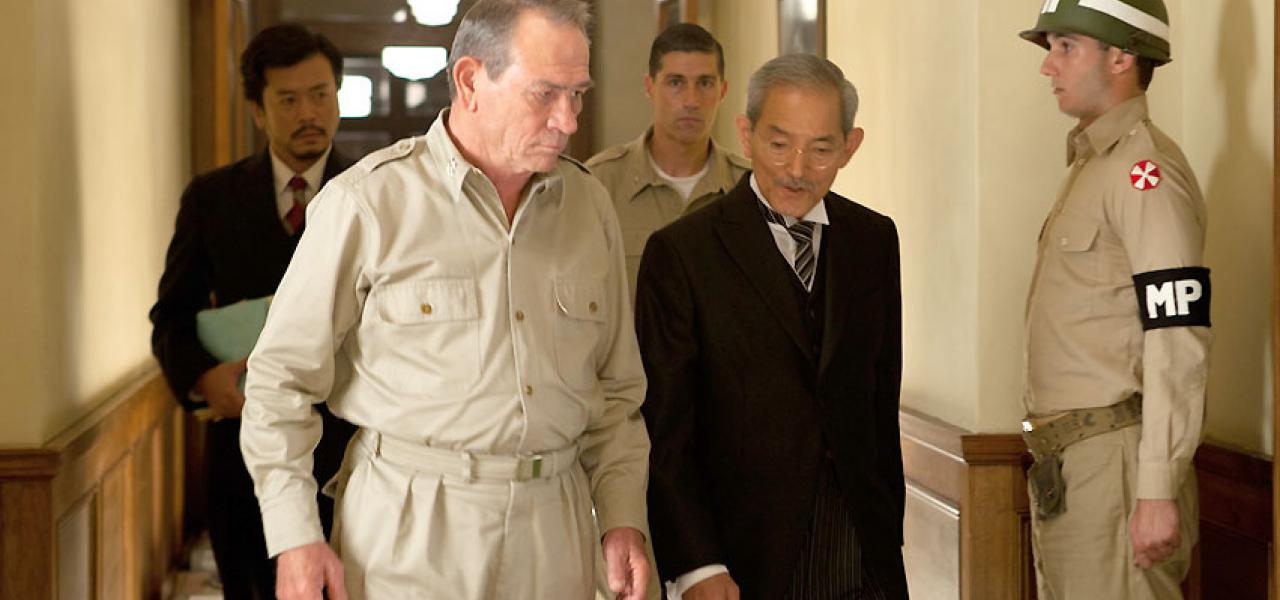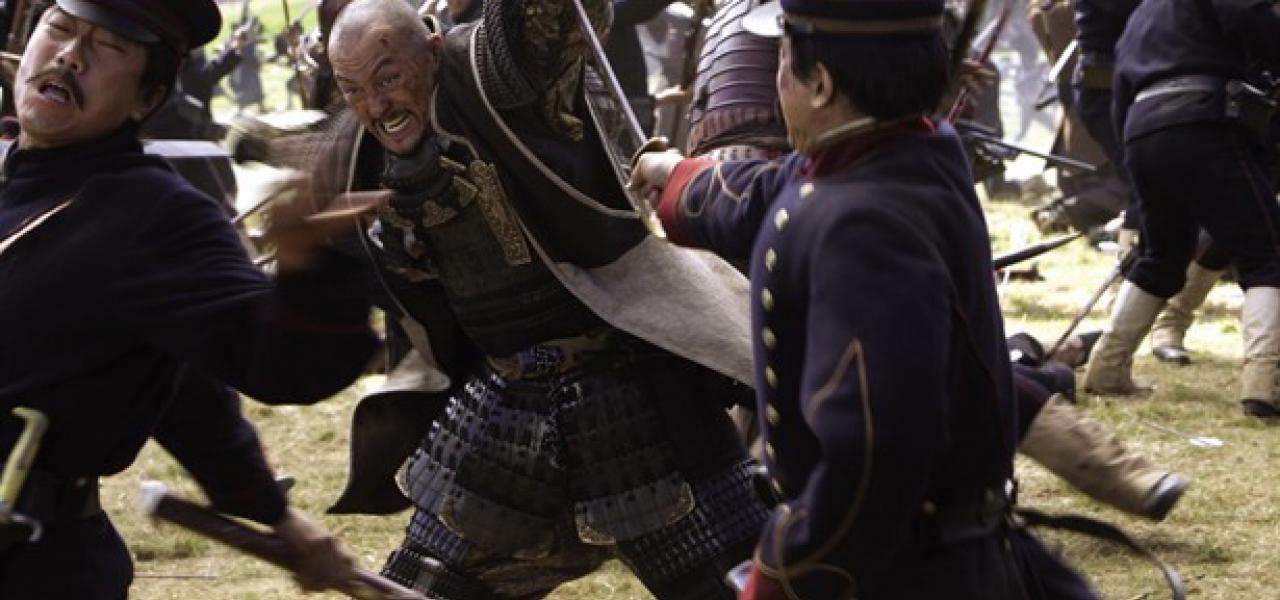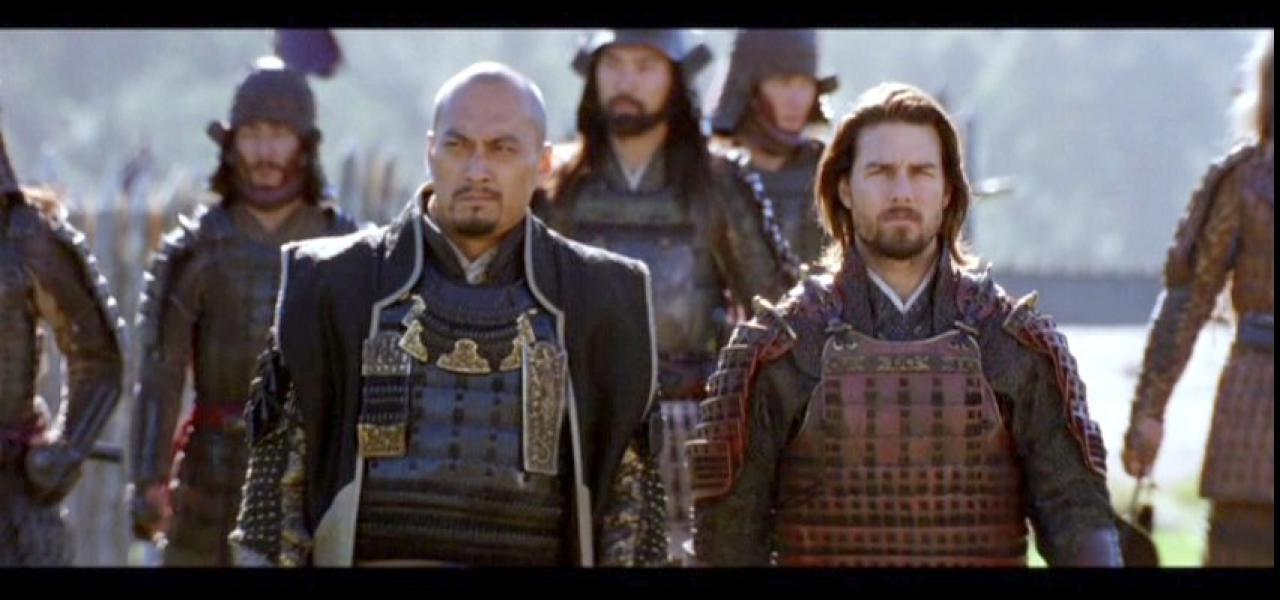ART AS SPIRITUAL FOOD
September 21, 2015
copyright to Thomas Kadmon
Through the prism of : two films on Japan
Japan has recently voted to end its pacifist stance. Its constitution following WW2 was meant to ensure that the world would not have to deal with another flare-up of Japanese militarism. It did not have an army per se, only a limited self-defence corps. Prime Minister Shinzo Abe has succeeded in restoring the traditional role of the army to wage war where the country’s or its allies‘ interests are at stake. There is considerable protest to this among large segments of the Japanese people, not to mention suspicions in China, which in recent commemorations of the end of WW2, recalled the rankling aggression of Japan against the Chinese, instead of merely focussing on a constructive future.
In the 2013 movie Emperor, Tommy Lee Jones play General Douglas Macarthur, the overlord representing American conquest and occupation of Japan in 1945. His task is to run an investigation whether Emperor Hirohito, regarded as a living god by his people, should be hanged as a war criminal. He knows this would be a disaster heaped upon a shattered people and, although vengeful voices in the US bellow for blood, the Emperor is treated with deference and not subjected to ignominy. The movie deals with a time when the Japanese warrior spirit in its foreign relations had to be sublimated. The effects of this sublimation were seen in the Japanese economic miracle over the next 45 years.
Another movie deals with a kind of birth of that warrior spirit in foreign relations, at a point in history about eighty years earlier: The Last Samurai (2003). The warrior spirit intrinsic to the Japanese people and epitomised in bushido, the code of the samurai, is recanalised when the feudal order of the samurai is overtaken by industrialisation and militarisation on the Western model. This, in turn, would, pave the way for the modern Japanese war effort in the twentieth century, right through to its extreme elements of kamikaze sacrifice, and the contempt for compromising with an enemy whose power one had fallen under.
Having seen shameful atrocities when the white and red man fought in Custer’s time, Captain Nathan Algren (played by Tom Cruise) is hired by the
Emperor of Japan to train the country’s first modern army in replacement of the samurai class led by Katsumoto (Ken Watanabe); however, Algren falls in love with the samurai’s feudal, rural and deeply spiritual way of life, with its roots in Shintoism and Zen, and literally falls in love with the wife of a samurai he killed in battle, Taka (Koyuki). He switches sides and leads the historic last battle charge of the samurai.
There is the understanding that the warrior spirit lives on in the young Emperor’s decisiveness and vision for modern Japan. It lives on in the white American Algren; and beyond him, in the hearts and lives of all who respect the essence of bushido. Why then is Asia nervous about the reemergence of the Japanese martial impulse? How does one go beyond the shame of misplaced aggression and own the warrior spirit in an appropriate way?
There has been a blanket of shame and guilt wrapped around Germany and Japan, largely woven by their victors, in reaction to the fascist systems that drove them into war. But a mature and fair discussion must acknowledge that no nation or group can be denied the right of self-defence; nor the fighting spirit; nor what lies behind it : the ‘will to power’ - still a terrifying phrase today. There is a will in a people to realise its destiny.
Will is the originating impulse behind the renewal of civilization. Human beings are creative beings : beings who go about cultural creation; but for every creative building there must be a destructive liberation. Out with the old, in with the new. Renewal is about creation and destruction proceeding simultaneously. An omelette is made by breaking the egg shell; a new habit is sown by uprooting an old; an institution is reformed by allowing what is unserviceable to fall away.
Interfaith conflict is a reality. Interfaith conflict resolution an aspiration and an ideal.




